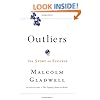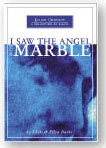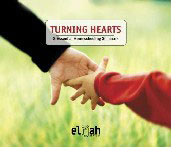
| E-journal August 10, 2010 |
THANKS SO MUCH to all of you who have responded to our home schooling survey and told us what you want to hear more about. If you still haven't taken that survey, you can GO HERE NOW and share your opinions. But now our son Blake would like your input. This is from him:: I grew up listening to James Dobson and reading Raising a Modern Day Knight, I Kissed Dating Goodbye, Boy Meets Girl, Best Friends for Life, Five Love Languages, etc. I really respect this guy's opinions and views, and I’m going to try to convince him to sit down with me and let me ask him some of the hard-hitting questions about dating/courtship, pre-marriage, sex and other relationship questions that everybody is trying to figure out. Please take a few minutes and respond to my dating/courtship/relationships survey. It won't take more than a few minutes of your time and Iwould appreciate it very, very much. And if you have a personal story about your dating/courtship or getting married as a home schooler, I'd love to hear it. You can contact me at cblakedavis@gmail.com. CLICK HERE TO TAKE THE SURVEY ON DATING/COURTSHIP AND BOY/GIRL RELATIONSHIPS.
by Ellyn Davis View past ejournals HERE>> Sign up for our newsletter below. I recently finished reading the book Outliers by Malcolm Gladwell. Anything Gladwell writes is well worth reading, but this book is especially so because it's an analysis of hidden factors in people's childhoods that are critical to their success as adults. I actually read the book on a cruise ship. My son, James works for Carnival Cruise Lines and had gotten me on his ship as a family member.( It's his birthday today, by the way!) I took the book to read with me while I was onboard.
Other researchers have reached the same conclusions. In study after study of composers, basketball players, fiction writers, ice skaters, concert pianists, chess players, and even master criminals, ten thousand hours of practice is required to achieve the level of mastery associated with being "world-class" in anything. It takes the brain this long to assimilate all it needs to know to achieve true mastery. The Ten Year Rule Ellyn
Resources With over 4,000 copies sold in just a few months, I Saw the Angel in the Marble is becoming a home schooling best seller! This book represents the best of 15 years of Elijah Company articles. Find our more HERE>>
Turning Hearts: Davis Seminar Set (8 CDs)
|
Making a Living Online within 279 Days
Creating Your Life on-line course at 1/3 off. This is an online, video-based self-study course in which Robert Fritz is your teacher and you learn to create your own life just as an artist paints a painting, a composer composes a symphony, or a poet writes a poem. In this course, Robert further develops the special insights that he introduced in his best selling book The Path of Least Resistance. The course has five lessons that will take you from 5 to 10 weeks to complete and includes a copy of Robert’s book Your Life as Art as well as the course materials and use of tools on the website. This course online is normally $299 and if you took it in person in Vermont it would be at least twice that. But with this special invitation code you can enroll for $199. I highly recommend that you take this course as a family—husband, wife, and high school age children. To enroll in this course, go to www.wisepond.com and enter this invitation code: AFF1455.
Our friend Susan is a home schooling Mom and she is very concerned about her children's health. Her son, Liam is allergic to almost every chemical known to man, so Susan has to be very, very careful what she allows him to play with. When he gets together with other children and they play with Play Doh, Liam can't play. The dyes and chemicals in the dough can not only make him very sick, they might kill him. Home School and Home Business
Home Schooling and Home Business Resources
If you missed one of our From Home School to Home Business Conferences, you missed a great time.People who attended told us that it changed their lives—not only in the area of home schooling, but also in the area of creating their own sources of home income.This set is huge and filled with useful and encouraging information about how to be successful at home schooling and at home business! Find out more about this life-changing set of CDs HERE>> Building the Business of Your Dreams (8 CD Set) We've had requests for just the business portion of the From Home School to Home Business Seminar, so have developed a set of the business CDs from that set. It contains 8 CDs and includes sessions on The Entrepreneurial Mind, Multiple Streams of Home Income, Discovering Your Ideal Life and Ideal Business (2 CDs) , Developing a Business Plan (2 CDs), and The Importance of Business Relationships. Plus, there is a very important and insightful interview on Redeeming the Marketplace. Find out about this life-changing set of CDs HERE>> Be sure to sign up for our ejournal! Sign up below. © Copyright 2010. Home School Marketplace |
 New Survey on Dating, Courtship and Boy/Girl Relationships!!!
New Survey on Dating, Courtship and Boy/Girl Relationships!!! Kids and the 10,000 Hour Rule
Kids and the 10,000 Hour Rule Outliers
Outliers




